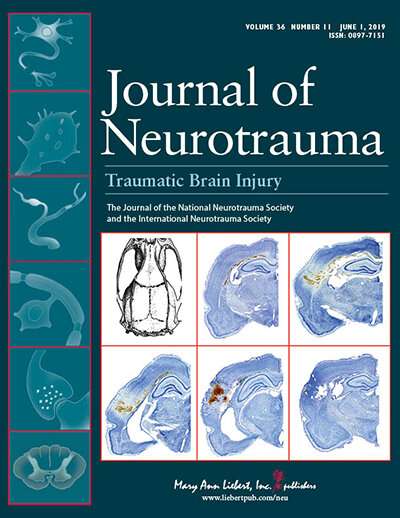Credit: (c) 2019 Mary Ann Liebert, Inc., publishers
Researchers have shown that higher intelligence and younger age are predictors of greater cognitive recovery 2-5 years post-mild to severe traumatic brain injury (TBI). In contrast, injury severity, as measured by the duration of post-traumatic amnesia, was not associated with greater or worse long-term cognitive recovery, as supported by a study published in Journal of Neurotrauma.
"Cognitive Reserve and Age Predict Cognitive Recovery Following Mild to Severe Traumatic Brain Injury" is the title of the study written by Jennie Ponsford, Monash University-Melbourne and coauthors from Monash University and Epworth HealthCare, Melbourne, Australia. In this longitudinal study, the researchers were not surprised to find that all of the TBI patients performed significantly worse on initial measures of intelligence (IQ tests, including assessments of reading, attention, memory, and executive function) after the injury compared to a healthy control group. Within the TBI group, shorter duration of post-traumatic amnesia, younger age, and higher IQ were associated with better initial cognitive performance.
John Povlishock, Ph.D., Editor-in-Chief of Journal of Neurotrauma, notes that: "This is an extremely important study in that it confirms the long-held clinical impression that age and premorbid IQ are important factors in determining outcome from traumatic brain injury. As noted by the authors, these findings strongly endorse the role of cognitive reserve and age in the cognitive recovery seen following traumatic brain injury which, as such, should help inform prognostication and rehabilitation."
More information: Elinor E. Fraser et al, Cognitive Reserve and Age Predict Cognitive Recovery after Mild to Severe Traumatic Brain Injury, Journal of Neurotrauma (2019). DOI: 10.1089/neu.2019.6430
Journal information: Journal of Neurotrauma
Provided by Mary Ann Liebert, Inc























